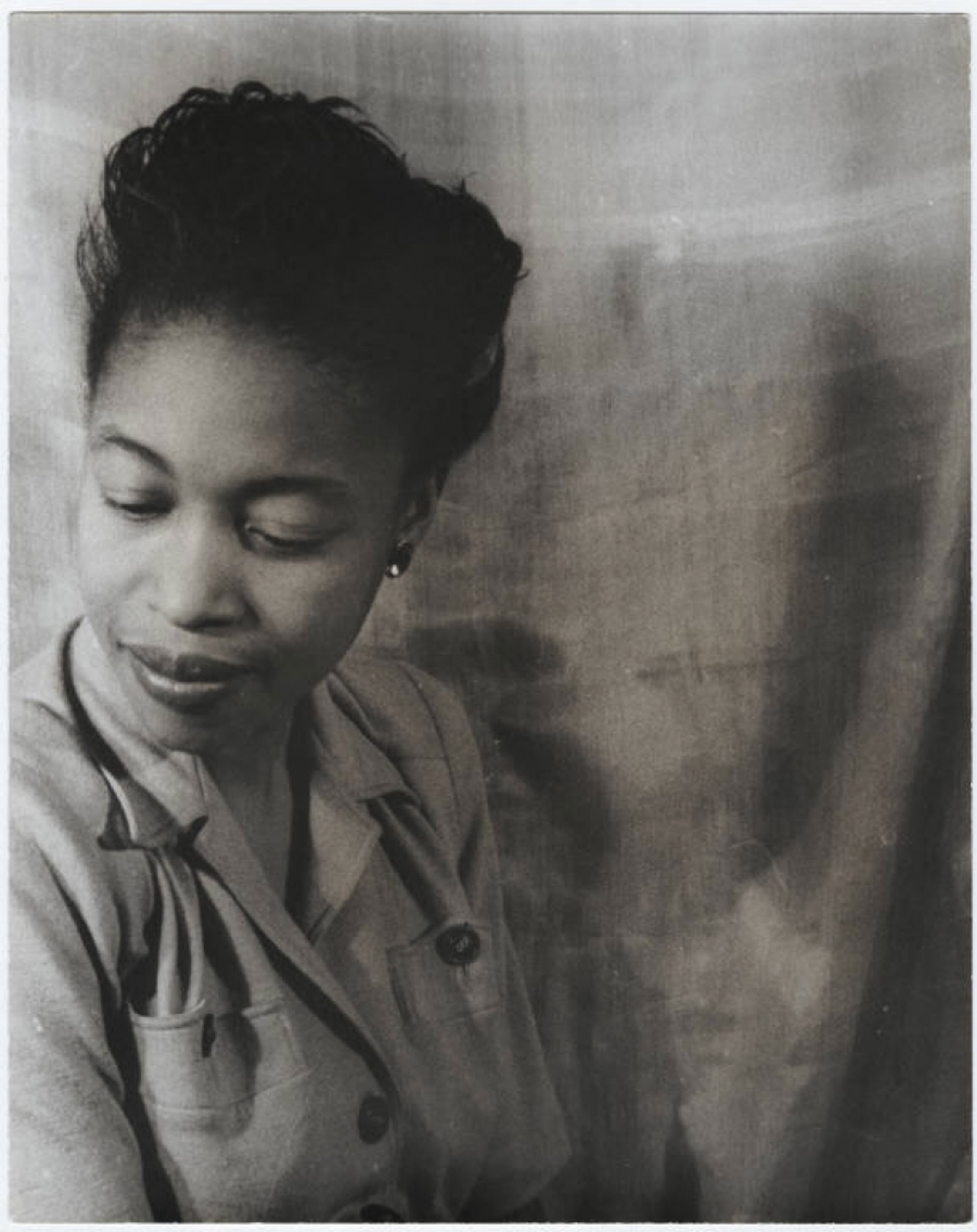I'm Talking About Revolution
By Kiese Laymon

Photograph of Margaret Walker by Carl Van Vechten © Van Vechten Trust
Margaret Walker’s Words as Writerly Fuel
Near the end of my senior year in high school, I went with my mother to the house of her mentor, Margaret Walker Alexander, who published under the name Margaret Walker. My mother, a political science professor at Jackson State, was helping her work on a biography of civil rights icon Aaron Henry. Ms. Alexander’s house was the only house I’d seen in Jackson with more books than ours. When I thought she was searching through a cabinet for one of her many manila folders, without even looking at me, she said, “So you are Mary’s son, the young writer named after the great Miriam Makeba?”
“I’m not a writer,” I told Ms. Alexander. “My middle name is Makeba. My first name is Kiese.”
“Own our writing, Kiese Makeba,” she told me. “Own your name. Own our writing. Do you hear me?”
I heard her, but she acted like I didn’t.
“Value our communication,” I remember her telling me. “Own our fight. Do not be afraid to fight. Our communication is the mightiest gift passed down by our people. Every word you write and read should be in the service of our people. Every picture you draw should be in the service of our people. Every step you take should be in the service of our people. Do not be distracted. Be directed. Those people, they will distract you. They will try to kill you. That’s what they do better than most. They distract, and they kill. That’s why you write to and for our people. Do you understand me? They will try to kill you whether you tell the truth or not. They will try to kill you whether you fight back or not. Tell us truth. Fight for us. Do not be distracted. Be directed. Own your writing.”
I told Ms. Alexander that I understood her speech, but I was lying. I told her that I’d read For My People and loved it. At the time, I was lying about that, too.
“Have you decided on college? Your mama told me that you don’t want to go to Jackson State because you don’t want her in your business.”
“I might be going to Millsaps College,” I told her. “They’re recruiting me for basketball.”
“Oh lord,” she said. “I’m talking about revolution, and this child is talking about playing some basketball at Millsaps College.”
Ms. Alexander walked over to a book on the floor in front of her bookshelf and handed it to me. On the faded pink book cover, half of a woman’s face was next to the title Cotton Candy on a Rainy Day.
On the way back home, I read Cotton Candy on a Rainy Day cover-to-cover. When I got home, I started reading it again. My favorite part was:
I strangle my words as easily as I do my tears
I stifle my screams as frequently as I flash my smile
It means nothing
I am cotton candy on a rainy day
The unrealized dream of an idea unbornI share with painters the desire
To put a three-dimensional picture
On a one-dimensional surface
I wrote down what I remembered of Ms. Alexander’s speech on the last page of Nikki Giovanni’s book. I kept coming back to the sentences: “Do not be distracted. Be directed. Write to and for our people.”
I used those sentences, and Margaret Walker’s Jubilee, as writerly fuel for the next decade, but I didn’t fully understand the difference between “writing to” and “writing for” our people. Twenty-five years later, I start every introduction of myself with the sentence, “Kiese Laymon is a black Southern writer from Jackson, Mississippi.” That sentence, and thousands more, are written in honor of Margaret Walker Alexander and the regional revolution she attempted to spark with every word she wrote. I write to and for her, because she crafted a life filled with the soulful, enduring literary art written to and for us, her people.
Nearly twenty years after her death and seventy-five years after the publication of For My People, this magazine sent me a previously unpublished poem of Walker’s. The poem, “An Elegiac Valedictory,” is a work that remembers, with comic clarity, the words, food, time, and space she shared with the likes of Toni Cade Bambara, James Baldwin, Ralph Ellison, and Audre Lorde. Like the dozen black writers Walker elegizes in the poem, I am thankful she walked this rocky wooded chase with us. We know how to walk, how to read, and how to write into our region and revolution because she dared to love us as we are.
Read “An Elegiac Valedictory” by Margaret Walker.
Enjoy this essay? Subscribe to the Oxford American.

